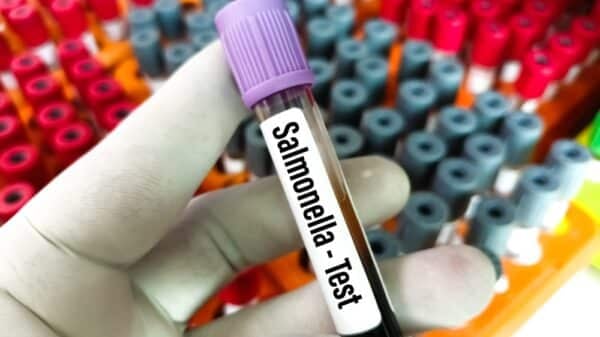Recovery from addiction is a profound journey—a challenging yet empowering process that often requires individuals to rebuild their lives from the ground up. For many, this journey transcends abstaining from substances; it entails defining a new identity and learning to face the world without the crutch of addiction. A significant piece of this puzzle involves addressing underlying mental health issues, particularly anxiety and depression. These issues may have originally fueled substance use or emerged as people embark on their recovery journeys. Tackling both addiction and emotional health side by side is essential because neglecting one can severely impact the stability of the other. Understanding and managing anxiety and depression is crucial for carving out a balanced and sustainable path to recovery.
Understanding the prevalence of anxiety and depression in recovery is key to recognizing their impact. These two mental health disorders are among the most commonly faced hurdles, not just for those recovering from addiction, but for countless individuals around the world. However, those working towards sobriety often find themselves at an increased risk for both conditions. The uncertainties of the future, fears surrounding the maintenance of sobriety, and the emotional toll of repairing important relationships can contribute significantly to anxiety. On the other hand, feelings of guilt, the absence of old social circles, and the brain’s adjustments following prolonged substance abuse can lead to depression.
For many individuals, these mental health challenges are compounded by a phenomenon known as post-acute withdrawal syndrome (PAWS). This condition can leave individuals grappling with emotional and physical symptoms long after the initial withdrawal has subsided. Mood swings, fatigue, and sleep disruptions are just a few of the symptoms that can linger for weeks or months, often intensifying feelings of anxiety and depression.
When both addiction and mental health challenges are present, known as co-occurring disorders, the importance of integrated treatment cannot be overstated. Integrated treatment allows individuals to receive simultaneous care for both issues. This holistic approach is critical, as failing to address mental health alongside addiction can put individuals at a significantly higher risk for setbacks during the recovery process. Research indicates that those who engage in both addiction recovery programs and mental health therapy increase their chances of achieving long-lasting recovery. Typically, effective integrated treatment combines medication, cognitive-behavioral therapy (CBT), and personalized lifestyle changes that cater to individual needs.
So, what are some practical strategies that can help individuals manage anxiety and depression while in recovery? Here are several actionable steps that can guide this process:
1. **Create a Support Network**
Establishing a strong support network is nothing short of vital for anyone in recovery, especially when mental health challenges come into play. Support can be found among family, friends, recovery groups, or mental health professionals. Many individuals discover that connecting with others who can relate to their journey offers invaluable encouragement and understanding. Supportive spaces like Alcoholics Anonymous (AA) or Narcotics Anonymous (NA) provide not only a sense of community but also accountability and motivation to stay sober.
Moreover, seek out groups that specifically focus on anxiety or depression; these can provide specialized insight and camaraderie. Knowing you’re not alone in your struggles can be tremendously comforting and can lessen feelings of isolation, which can often trigger symptoms of anxiety and depression.
2. **Value Therapy and Counseling**
Therapy can be a transformative component of recovery, addressing both addiction and mental health simultaneously. Cognitive-behavioral therapy (CBT) is particularly powerful for managing anxiety and depression. It helps individuals recognize and reframe negative thoughts, offering practical strategies on how to respond effectively to stress and cravings.
Other therapeutic methods, like dialectical behavior therapy (DBT) or acceptance and commitment therapy (ACT), can further benefit those grappling with overwhelming emotions. These approaches equip individuals with coping skills and enhance mindfulness—an invaluable asset for navigating the complexities of anxiety and depression. Many find that therapy not only aids in addressing mental health issues but also arms them with tools for managing life’s everyday stresses without resorting to substances.
3. **Explore Medication as an Option (With Caution)**
For some individuals, medication can play a crucial role in managing the symptoms of anxiety and depression, especially if these symptoms are pronounced. Antidepressants or anti-anxiety medications can stabilize mood and relieve emotional distress, but it’s essential to approach this option with caution. Always work closely with a healthcare provider who has a deep understanding of both mental health and addiction. This collaborative effort ensures that the benefits of medication are weighed against potential risks, with vigilant monitoring to navigate any side effects or dependencies.
4. **Prioritize Physical Health and Routine**
Emphasizing a healthy lifestyle is critical for managing anxiety and depression. Regular physical activity has been linked to improved mood through the release of endorphins, the body’s natural mood lifters. Even moderate exercises like walking or yoga can offer significant advantages for emotional wellbeing.
A wholesome diet provides the essential nutrients your body and brain crave, directly impacting mental health and mood stability. Sleep is another cornerstone—setting a regular sleep schedule can work wonders in counteracting anxiety and depressive symptoms. Many people in recovery find success in weaving self-care, restorative practices, and personal pursuits that foster a sense of accomplishment into their daily routines.
5. **Implement Mindfulness and Meditation**
Incorporating mindfulness and meditation can be remarkably effective in managing anxiety and depression. Mindfulness encourages individuals to focus on the present moment, which can effectively diminish negative thoughts and urges. Exploring practices like mindfulness-based stress reduction (MBSR) or using guided meditation apps can serve as an excellent introduction to these techniques.
Integrating mindfulness doesn’t have to be complicated. Simple practices—like deep breathing, intentional eating, or taking quiet moments for yourself—can relieve stress and enhance awareness of your inner thoughts and feelings.
Challenging stigma is an essential part of managing mental health during recovery. Too often, individuals feel ashamed or reluctant to reach out for help with anxiety or depression, especially in conjunction with their addiction recovery journey. It’s vital to recognize that mental health challenges are multifaceted, treatable conditions, not personal failures. Embracing self-compassion is a game changer, allowing individuals to seek the support they need without fear of being judged.
Ultimately, the recovery journey is about much more than just abstaining from substance use; it’s about fostering a sense of holistic wellbeing. Addressing anxiety and depression is a crucial aspect of this voyage. By building a solid support network, engaging in therapy, considering medication when necessary, prioritizing physical health, and practicing mindfulness, individuals can cultivate resilience and balance in their lives. Each step taken toward managing mental health is a stride toward a richer, healthier existence—one where recovery isn’t just a goal, but a fulfilling and cherished reality.

































